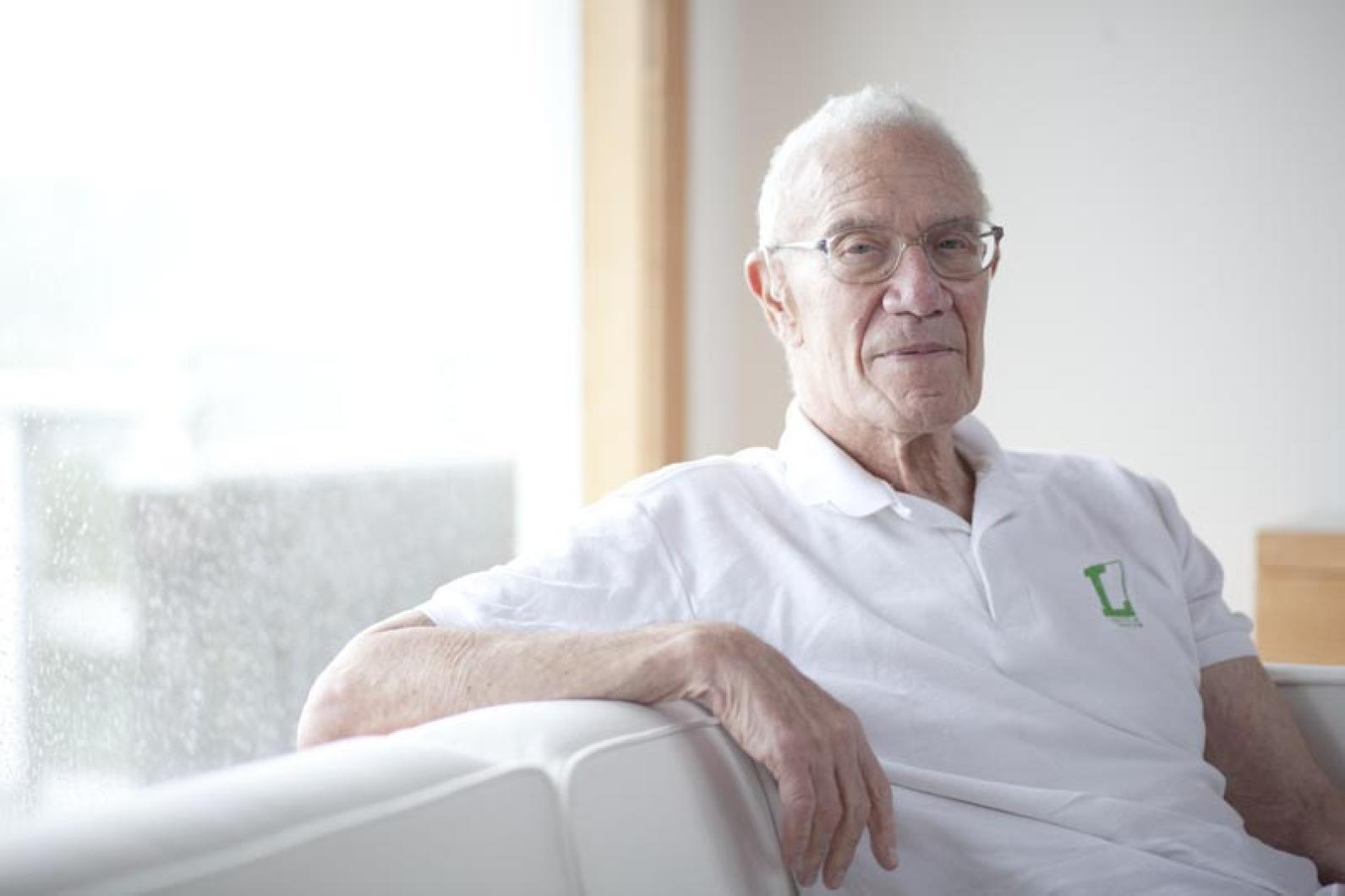Robert M. Solow, a Nobel Prize-winning economist, longtime professor at MIT, winner of the Presidential Medal for Freedom in 2014 and Chilmark summer resident since 1962, died on Dec. 21 at his home in Lexington. He was 99.
A distinguished economist, Mr. Solow won the Nobel Prize in 1987 for his theories on economic growth, specifically how technological change has a much larger effect on an economy than capital investment.
Mr. Solow frequently gave talks on the Vineyard over the years and was known for his ability to present complex economic topics in a clear way. Each time he brought listeners into a classroom of sorts, promising not to talk down to them.
“I’m going to do something very rare in this business,” he told a crowd at Union Chapel in 1993. “I’m going to treat you as intelligent adults and I’m going to try to explain to you how to think about these questions, not what to think about them. I have my prejudices, of course, as you have yours. What I want to do is to get across to you how professional economists do this. I’m going to work you very hard and then there will be a brief written examination. I will sneak my prejudices in, in a slinky way.”
Robert Solow was born in Brooklyn on August 23, 1924. He earned his undergraduate and doctoral degrees from Harvard and began teaching at MIT in 1950, retiring in 1995. He wrote widely, publishing three books and numerous articles.
In an interview with the Gazette in 1987, he was asked by reporter Elaine Lembo what life was like after winning the Nobel Prize, Mr. Solow said: “It’s like chaos. It really is. We had a wonderful time in Stockholm. It’s a little bit like eating chocolate truffles. After a while you yearn for some simplicity.”
On the Vineyard, Mr. Solow enjoyed sailing, and in 1989 conducted an interview for the MacNeil-Lehrer Report with Chilmark neighbor and fellow Nobel Prize-winning economist, Franco Modigliani, aboard the 48-foot sailboat Ayuthia, captained by Thomas Grew.
Afterwards, Captain Grew reported in an interview with the Gazette that sailing and deep-thought interviews can sometimes get in the way of each other. “Each time we had to tack they would have to shut down, even if the discussion was in the middle of a subject like economic primary indicators,” he said.
Throughout the decades, at subsequent talks around the Island, Mr. Solow held forth on military spending, the national budget, politics and the Great Recession of 2008.
He was also prescient. In a talk at Fanny W. Blair Hall in Vineyard Haven in 1989, he reflected on how the baby boomer generation’s eventual retirement might affect the Vineyard.
“It’s a good bet, I would guess, that population will find the Cape and the Islands a good place to go. The number of vacation days per year for managerial and technical people in industry — the people earning good income — is probably going to increase.”
In addition to his award-winning economic theories, Mr. Solow also understood the recipe for a good life, which he expressed in a 1987 interview with the Gazette.
“If I could spend my life between Menemsha and MIT, I’d be the happiest man in the world.”




Comments (2)
Comments
Comment policy »